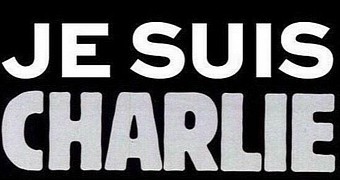This week, France has been the target of the first terror attack in its history, as a group of people claiming terrorist allegiance attacked the headquarters of the Charlie Hebdo satirical newspaper and killed the journalists who published a number of caricatures which were considered as being disrespectful towards Islam and its followers.
A major manhunt was launched and journalists and members of the public all over the world showed their solidarity by using social media channels to post images and to create new caricatures tackling the themes that motivated the attackers.
Discussions about the limits of free speech and about the respect that certain cultures need or demand have sprung up in many outlets and there are plenty of voices who are blaming the Charlie Hebdo journalists for their own fates, while others claim that Islam cannot be a religion of peace.
The reality is that the attack was well planned and executed and shows that from now on violence from extremists, or the threat of it, can be used to scare almost anyone who has something uncomfortable to say with words and images.
Weirdly, the attack and the discussions it has spawned seem to have attracted no interest from those who love, create and play video games.
We exist in a medium which has an increasingly big audience and features major releases that routinely use entire groups as villains or have the protagonist perpetrate acts of extreme violence on enemies that are still human and can be recognized as members of various groups.
There’s a lot of potential for offense in the industry and there’s also a solid chance that in the future revenge might be sought by those who feel affected.
The next Homeland title deals with a United States invaded by a united Korea which is dominated by the ideology of the North.
This could potentially spawn a cyberattack from the state or even real world reprisals, although that’s much less likely (but so was an attack in the heart of Paris against journalists).
Shooters were obsessed with the Middle East and its wars for a while and plenty of insurgent groups in the region might be unhappy with how they were portrayed.
How would we feel if a major developer were attacked because someone did not like how the enemy forces were portrayed in its titles?
Video games need to talk about freedom of expression and its consequences
We live in a world where people will be offended by ideas and by the fact that they are expressed, via articles, caricatures or video games.
Major developers and publishers should make it clear when they plan to tackle sensible subjects and they should make sure that they do not gloss over uncomfortable truths, but also that they do not needlessly offend.
The Sony hack shows how easy it is for entertainment to be seen as insult and how quickly reactions can become dangerous, even if hacks are not in the same category as bullets.
There was a danger that video games in the US would be censored because of their violent content.
The bigger danger now is that publishers will decide to self-censor in order to make sure that their titles do not attract the kind of attention from terrorist groups that led to the tragedy at Charlie Hebdo.

 14 DAY TRIAL //
14 DAY TRIAL //